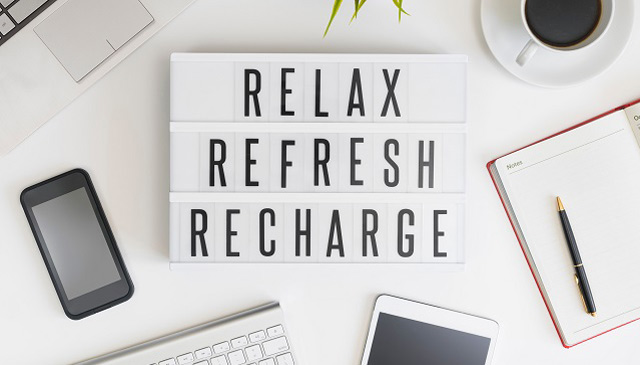
Amid the ongoing pandemic, historic winter weather, political divisions and the twists and turns of everyday life, our Texas Children’s team members are encouraged to focus on self-care: intentionally making time and space in our schedules for activities that support our physical, mental and emotional health.
Employees in clinical and non-clinical roles alike are feeling stress and anxiety during these challenging times, when our work and home lives are often blending together. The key to feeling better though self-care is developing your own routine and practicing it regularly.
“We’re all coping with it, and self-care is going to look different for different people,” said Dr. Gia Washington, assistant professor in the Psychology Section at Baylor. “There can be so much joy in trying things and finding out what works for you.”
And you don’t have to go it alone – resources to help you along your self-care journey are available through Employee Well-Being, including confidential counseling through the Employee Assistance Program and one-on-one health coaching for stress reduction, work-life satisfaction and more. No-cost coaching sessions are provided on site at the Medical Center, West Campus, The Woodlands and the Health Plan.
“Our health should be our first priority,” said Ashley Miller, one of two Cigna Onsite Health Coaches who work exclusively with Texas Children’s team members. “There’s no shame in having trouble coping with all that is going on, and there’s nothing to fear in seeking counseling or support.”
Five ways to get serious about Self-Care
- Practice positive affirmations. To break the cycle of negative thinking, select a word, phrase or mantra that you find encouraging or uplifting and tap into it in high-stress moments. Washington suggests pairing your chosen affirmations with a color or song to keep them top of mind, while Miller recommends writing out three affirmations and putting them in a visible spot where you can see and say them out loud when needed.
- Create structure and maintain boundaries. Make a to-do list before walking into your workspace each day to help you stay focused, and don’t be afraid to say no if your plate is loaded with more tasks than you can handle. “We’re human and we can only get so much done,” Miller said. “It’s not the end of the world, and it’s okay to ask for help.”
- Be selective about the information you consume. We live in the age of the 24-hour news cycle and while it’s important to stay informed, we shouldn’t allow ourselves to be inundated. “Be careful about the media, words and images coming into your mind for an extended period of time,” Washington said. That could mean turning off the TV or shutting down social media.
- Make rest a priority. Set aside time to really rest. Quiet your mind, still your body, put away your phone and focus on simply being rather than doing. “Give yourself time away from thinking about work and the everyday life struggles,” Miller said. We all need and deserve a moment to unwind, and taking some time off from the daily grind can help improve your overall mood.
- Revisit activities that helped you manage your stress in the past. When you’ve previously felt stressed or anxious, what did you do? Those tried and true strategies could help you navigate the situation you’re experiencing today. “Examine those things that have worked well in the past,” Washington said. “What gave you relief, made you feel supported and helped you reclaim your joy?”

